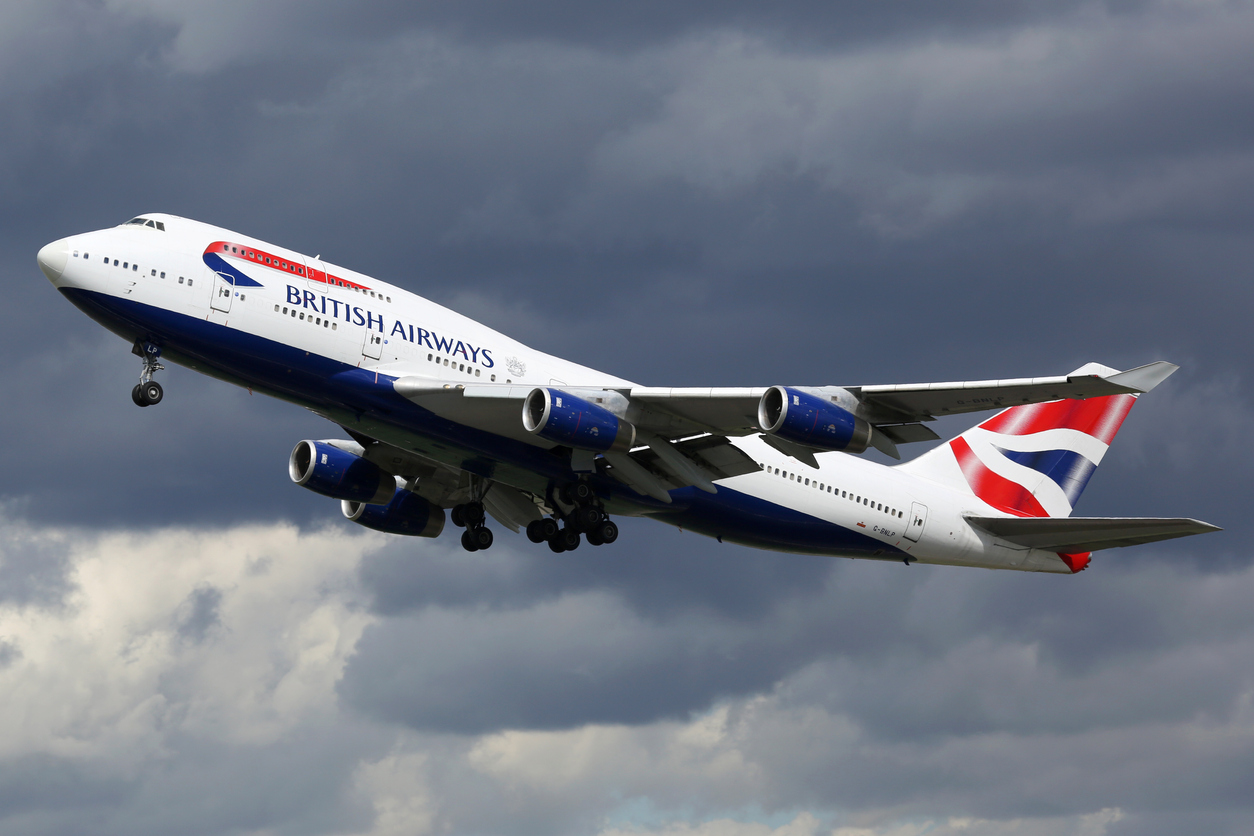£20 Million Later: How British Airways Paid the Price for a Preventable Privacy Breach
In today’s digital economy, data is both an asset and a liability—and nowhere was this more evident than in the British Airways (BA) data breach. In 2020, the airline was fined £20 million by the UK’s Information Commissioner’s Office (ICO), one of the largest penalties ever issued under the General Data Protection Regulation (GDPR) in the UK. The fine stemmed from a 2018 cyber-attack that exposed the personal and financial information of over 400,000 customers. But the damage extended far beyond the financial loss.
This was not simply a one-off security lapse. The breach highlighted systemic failures in BA’s cybersecurity posture and raised critical questions about how large enterprises approach data protection. It also served as a cautionary benchmark in a broader landscape where regulatory scrutiny is intensifying across industries. For context, British Airways joined the ranks of major global companies facing steep penalties for data protection failures—many of which are profiled in this breakdown of recent corporate privacy violations.
This article explores how the breach occurred, why it happened, and what it reveals about the true cost of losing customer trust.
What Was the British Airways Data Protection Breach?
The data breach began in June 2018 and went undetected until September of that year. During this window, attackers exploited vulnerabilities in British Airways’ digital infrastructure and redirected users to a fraudulent website. The spoofed site closely mirrored the airline’s legitimate platform, allowing attackers to silently intercept vast amounts of personal and financial information as customers attempted to book flights.
The ICO’s investigation revealed a pattern of systemic failure. British Airways had not implemented key security protocols that are now considered baseline expectations for any enterprise operating in the digital space. The most critical oversights included:
-
The absence of multi-factor authentication (MFA) for critical systems
-
Inadequate logging and monitoring, which allowed the breach to continue unnoticed for over two months
-
A development feature left active on the live system, which resulted in CVV codes and other payment data being stored in plaintext—an explicit violation of GDPR compliance
As a result, the attackers were able to access:
-
Full names
-
Email addresses
-
Credit card numbers, expiration dates, and CVV codes
-
Travel booking details
-
Login credentials for BA employees and administrators
In its official statement, the ICO concluded that British Airways had failed to adopt “appropriate technical and organisational measures” and was processing personal data “without adequate security in place.”
The breach served as a glaring example of how outdated cybersecurity protocols can fatally undermine consumer trust and corporate credibility. In today's evolving business environment—where digital trust is now a form of capital—leaders are expected to implement not just safeguards, but visible, intentional trust strategies. As seen in the growing emphasis on executive digital trust standards reshaping C-suite accountability, this breach has underscored a shift in how trust is earned, protected, and measured.
Moreover, it highlighted the increasing importance of leadership visibility in virtual environments. The modern workforce, now largely hybrid or remote, expects more than technical competence—they look to leadership for assurance, transparency, and values-led decision-making. Incidents like this one emphasize why elite leaders today are investing in building unshakeable trust across virtual teams—before a crisis ever forces the issue.

How Did British Airways Respond to the Data Breach?
British Airways made several immediate moves once the breach was uncovered. These included issuing a public apology, notifying affected customers, offering credit monitoring services, and launching a full internal investigation. The airline also retained external cybersecurity consultants to assist with forensic analysis and to help modernize its digital infrastructure.
Additionally, BA cooperated fully with the ICO and committed to improving its long-term security posture through upgraded protocols and internal risk assessments.
Despite these actions, critics argued that the response was more reactive than proactive. The two-month delay in detecting the breach revealed deep weaknesses in monitoring systems. Furthermore, the scope of the breach made it clear that the airline lacked a comprehensive cybersecurity governance strategy.
Originally, the ICO had proposed a £183 million fine—a figure that would have set a record under GDPR enforcement. However, this was ultimately reduced to £20 million, with the regulator citing the financial impact of COVID-19 on the aviation sector as a mitigating factor. Still, the fine marked a defining moment for how data privacy enforcement would evolve in the UK and Europe. It also raised a broader debate about how much a company should pay for failing to protect its users’ information, especially when sensitive financial data is involved. This discussion is further explored in this analysis of corporate penalty thresholds and compliance strategy.
What Was the Reputation Damage of British Airways' Data Breach?
While the financial penalty attracted headlines, the longer-term impact on British Airways' reputation may have been even more damaging.
Customer trust was severely eroded. Many users expressed reluctance to book through the airline’s digital channels again, raising concerns not only about personal financial risk but also about BA's broader competency in managing user data.
Brand perception suffered across global markets. The breach occurred at a time when British Airways was positioning itself as a premium carrier, particularly targeting corporate and high-net-worth travelers. The incident compromised that positioning, with reports suggesting that BA’s brand reputation fell to a four-year low in the months following the breach.
Investor sentiment was shaken. Although parent company IAG experienced only limited short-term volatility in its share price, the incident led to sustained discussions about risk exposure and corporate governance. Investors and analysts began scrutinizing IAG’s cybersecurity policies and data protection frameworks, questioning whether enough was being done to prevent future incidents.
Media coverage amplified the fallout. Global coverage of the breach positioned British Airways not as a victim of a sophisticated attack, but as an organization that had failed to meet even basic security standards. The consensus in both industry and public discourse was that the breach was preventable—and that is perhaps the most reputationally damaging aspect of all.

Sean Doyle, CEO of British Airways
@businesssuccesselites
Key Lessons: What This Breach Means for All Enterprises
The British Airways breach serves as a stark warning to businesses across all sectors: the cost of poor cybersecurity is not just measured in fines, but in brand equity, customer loyalty, and strategic credibility.
Cybersecurity is inseparable from privacy. In today’s regulatory environment, weak technical defences are no longer considered isolated IT issues—they are now seen as violations of data protection laws. Companies must view cybersecurity as a core legal and ethical obligation.
Detection speed is critical. The fact that BA’s breach persisted undetected for more than two months significantly worsened the outcome. Businesses must invest in real-time monitoring, incident response plans, and simulation exercises to ensure faster containment in the event of an attack.
Fines are only part of the picture. The regulatory fine may dominate initial headlines, but the reputational and operational costs that follow often far outweigh the financial penalties. This principle has been seen repeatedly across industries—most recently in the case of TikTok, which faced similar enforcement action for privacy failures involving European user data. This case offers a revealing look at how fines intersect with public trust and platform accountability.
Data privacy is a business continuity issue. The BA breach disrupted not only customer confidence but also internal operations, legal strategy, and executive decision-making. Privacy cannot be treated as a regulatory checkbox—it must be embedded into the company’s risk management architecture.
Conclusion
The British Airways data breach is a defining case study in how security failures can escalate into full-blown business crises. It is a reminder that trust, once lost, is difficult to recover—and that in the world of GDPR and global privacy regulations, ignorance is no defense.
For British Airways, the £20 million fine was undoubtedly painful. But the true cost lies in the erosion of trust from customers, partners, regulators, and the market. It is a cautionary tale that should resonate across every boardroom: in the digital age, data protection is not optional—it is existential.
Related: How Executives Can Ensure Strong Data Hygiene Across the Workforce











